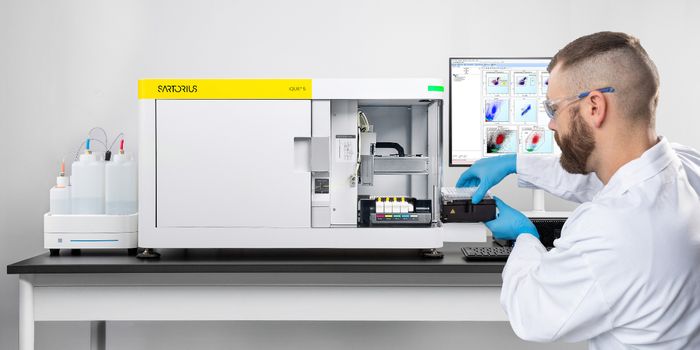This blood test uses machine learning to detect multiple cancers
A new study published online in Nature details the results of an investigation on a blood test that is capable of detecting multiple types of cancer. The test is called DELFI and stands for “DNA evaluation of fragments for early interception.” It looks for particular patterns of fragmentation from cancer cells’ DNA in the bloodstream in order to identify the presence of breast, colorectal, lung, ovarian, pancreatic, gastric and bile duct cancers.
The study looked at 208 patients with various stages of the above-listed cancers in the U.S., Denmark and the Netherlands and found that DELFI was able to detect the presence of cancers in 57-99% of the patients’ blood samples. It is also important to note that DELFI did result in some false positives, identifying cancer in four members of the control group of 215 that did not have actually have cancer.
DELFI is different from conventional liquid biopsy cancer detection tests because it uses machine learning to detect abnormal patterns of DNA fragments in cancer patients’ blood.
"For various reasons, a cancer genome is disorganized in the way it's packaged, which means that when cancer cells die they release their DNA in a chaotic manner into the bloodstream," says Jillian Phallen, Ph.D., a lead author on the study and a Johns Hopkins Kimmel Cancer Center postdoctoral fellow. "By examining this cell-free DNA (cfDNA), DELFI helps identify the presence of cancer by detecting abnormalities in the size and amount of DNA in different regions of the genome based on how it is packaged."
The researchers say that DELFI has the potential to identify the cancers' tissue of origin in up to 75% of cases, which is helpful in determining the source of the cancer. The test is also beneficial in that it is inexpensive and easy to administer.
"We're encouraged about the potential of DELFI because it looks at a completely independent set of cell-free DNA characteristics from those that have posed difficulties over the years, and we look forward to working with our collaborators worldwide to make this test available to patients," says senior study author Victor E. Velculescu, M.D., Ph.D., professor of oncology and co-director of the Cancer Biology Program at the Johns Hopkins Kimmel Cancer Center.
Sources: Science Daily, Nature









